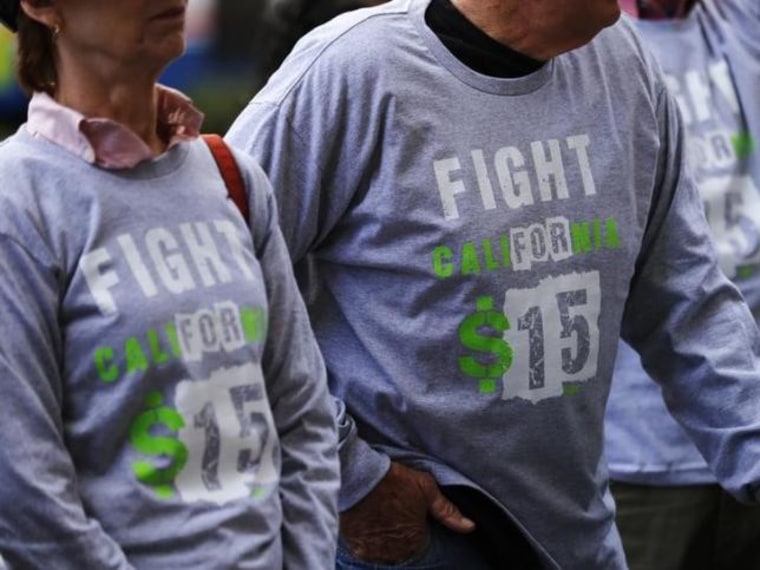SEATTLE — The U.S. Supreme Court will not hear a challenge to Seattle's $15-an-hour minimum wage from franchise owners who say the law discriminates against them by treating them as large businesses.
Seattle was one of the first cities in the nation to adopt a law aiming for a $15 minimum wage, giving small businesses employing fewer than 500 people seven years to phase it in. Large employers must do so over three or four years, depending on whether they offer health insurance to their employees.
Five franchises and the International Franchise Association sued the city, saying the law treats Seattle's 623 franchises like large businesses because they are part of multistate networks. But the franchises say they are small businesses and should have more time to phase in the higher wage.
The justices did not comment on their order Monday that leaves in place a federal court ruling in favor of Seattle.
The decision comes as several other cities and a group of states, including California and New York, have started to phase in a $15 minimum wage in recent months. But each municipality and state takes a slightly different approach. San Francisco changed its minimum wage around the same time Seattle did.
The president of the International Franchise Association expressed disappointment in the Supreme Court's decision and said the group was still deciding what its next steps will be.
"Seattle's ordinance is blatantly discriminatory and affirmatively harms Seattle hard-working franchise small business owners every day since it has gone into effect," Robert Cresanti said in a statement. "We are simply attempting to level the playing field for the 600 local franchise business owners employing 19,000 people in Seattle."
The 9th U.S. Circuit Court of Appeals said in September that it did not believe the franchise association would succeed in its lawsuit and refused to block the law. It said the association was not persuasive in its arguments that its members would be harmed.
